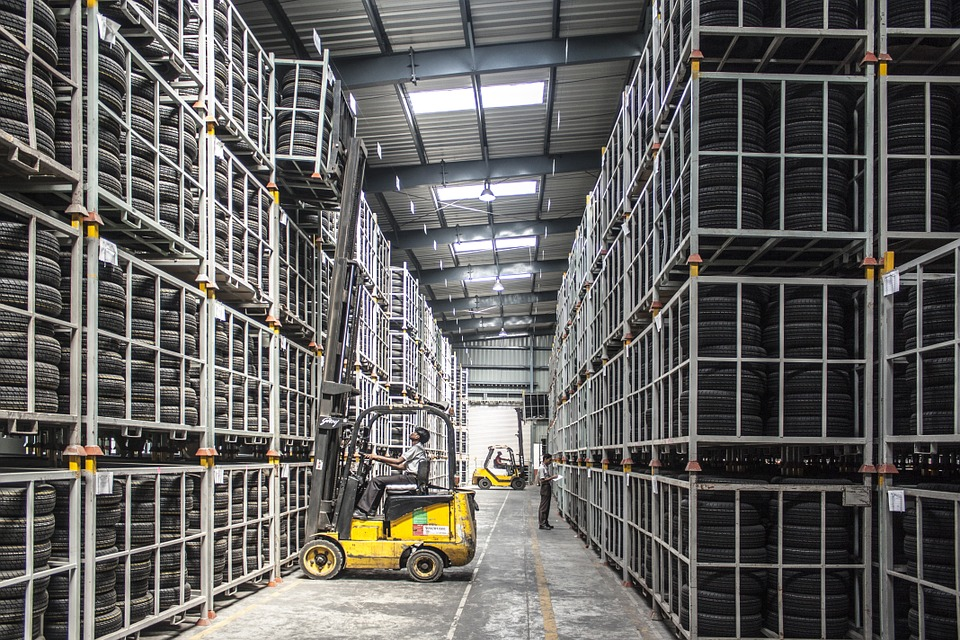
Effective supply chain management (SCM) must be a strategic priority for businesses that want to serve their customers well. SCM represents the effort by a company, together with its partners, to develop and run a supply chain process efficiently. With effective SCM, the movement of a product from manufacturing to the end user’s hands is streamlined, helping businesses achieve a sustainable advantage in today’s increasingly competitive business world.
An integral part of SCM is warehousing, which makes the sorting of goods more straightforward and keeps products safe and secure. Although some people may view a warehouse as simply a place for the storage of finished goods, there are actually other benefits of good warehousing in SCM that are less obvious or often overlooked. Warehousing plays a more significant role in the supply chain process than some people may think. Read on to learn more about the importance of good warehousing.
Facilitates An Overall Efficient Inventory Management
A crucial component of effective SCM is keeping a well-tracked inventory. A good warehouse could make large inventory management so much easier and faster for businesses. The lack of this may lead to poor customer experience due to delayed order processing and late shipments. In addition, ineffective inventory management may run the risk of stock spoilage or damage.
Since a warehouse could be a centralised location for all your products, you can develop a systematic approach for the reception of orders and distribution of products. You’d also be glad to hear that there are aerial work platforms for sale in the market that would enable you to do small, medium, or large load lifting in your warehouse. It further makes the inventory management process more efficient. Indeed, warehousing is ideal for businesses trying to get more organised and match supply with demand.
Here are a few advantages of having efficient inventory management in your supply chain:
- Tracking goods in excess: With improved identification, categorisation, and storage of goods, you can track goods in excess so they could be distributed to other locations where customer demand is higher.
- Protection of stocks: Good warehousing would also ensure that businesses can keep products with low demand safe until demanded.
As a component of SCM, efficient inventory management may result in a stronger supply chain.
Adds Value To The Logistics System
Another reason good warehousing is essential to SCM is that it provides a means for businesses to ensure the availability of the right products at the correct place whenever the time is right. It increases the utility value of the goods that way.
The warehouse is there and always ready for other necessary activities that need to take place, such as order consolidation, assembly of components, product mixing, and cross-docking. It even plays an essential role in the logistics system’s packing and shipment stages.
A logistic system’s primary objective in supply chain management is to reduce cycle times and lower costs. This could be achieved with proper product management at the warehouse.
Ensures Customer Satisfaction
Business owners know the importance of ensuring the satisfaction of customers by providing them with a satisfying buying experience. Good warehousing could help make that possible.
Customers expect to know when approximately their purchases will be delivered after an order is placed. The knowledge regarding the delivery time boosts their confidence. Some of them pay faster as a result. Of course, they become more hesitant when uncertainty exists around the timely delivery of products.
Nowadays, delivery speed seems to be one of the significant factors that consumers consider when choosing a product and deciding whether or not to proceed with the purchase. Luckily for business owners who have good warehousing practice in their overall SCM strategy, a warehouse could help minimise product delivery errors, creating room for fast and safe delivery of goods.
Offers Economic Benefits
A significant reason to invest in building a warehouse is the many known economic benefits that come with it. Not only the improved efficiency of the supply chain but also the warehouse’s storage capacity and how it serves as a central location for your products contribute to its economic advantages.
Good warehousing could reduce costs, such as transportation of goods, outbound product delivery, and shipping. These things could be seen or realised through consolidation and accumulation operations.
Here’s a closer look at how consolidation and accumulation could help lower costs:
- With consolidation operations, there’s no need to ship items individually from multiple sources because they could be delivered to your warehouse as stocks. Once an order is placed, you or your staff can pack and ship the product out from there.
- With accumulation operations, you could balance the supply and demand of stocks. As you know, supply and demand could have a significant impact on the profitability of your business, especially when a product isn’t always available in the market despite a year-round demand for it. It’s known as safety stocking, which acts as insurance against out-of-stock items.
Conclusion
Warehousing is one of the most important components of the logistics system and the overall supply chain process. It facilitates an efficient product inventory and makes logistics more efficient, helping it meet goals. Not only that, but good warehousing also improves customer service and offers economic benefits. All of these things could lead to higher revenue and improved business profitability.
